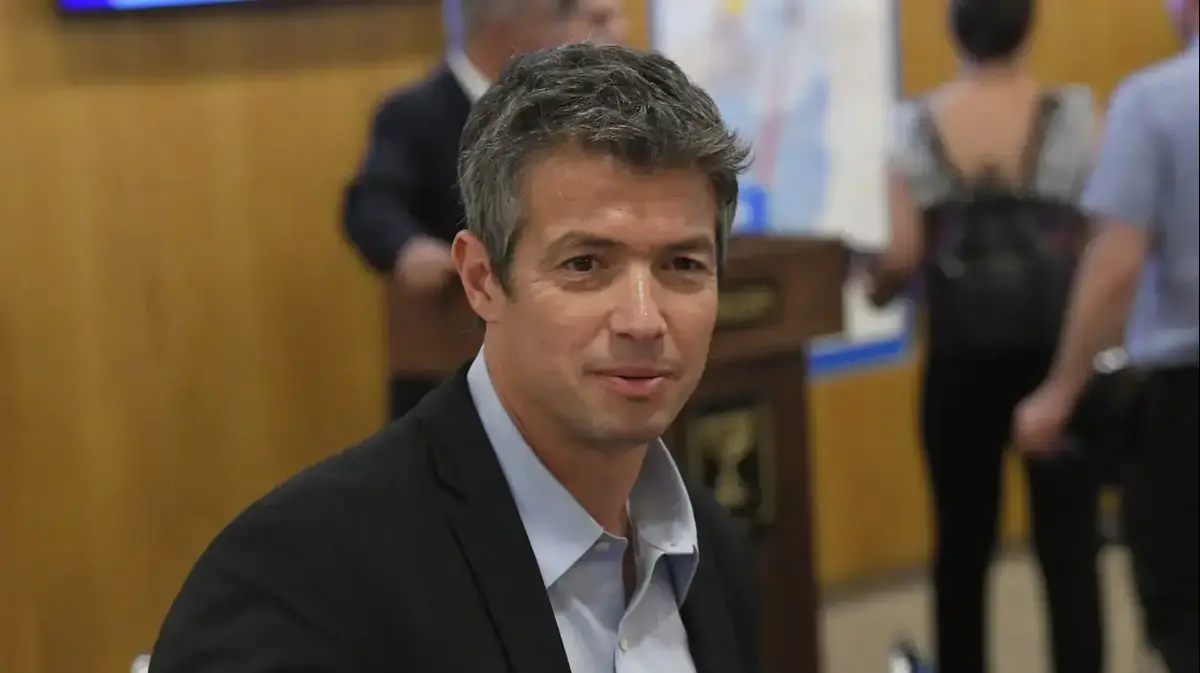Mr. Fiber: Handel entered a minefield, and was saved thanks to a rebranding
Communications Minister Yoaz Handel does not really suffer from the spotlight but has well established himself as a "Mr. Infrastructure" who does not immerse himself in the murky puddle of the media.
On the other hand, he finds it difficult to make difficult decisions that may make him strong enemies in the industry, but will benefit the Israeli consumer.
David Wertheim
09/06/2022
Thursday, 09 June 2022, 16:30 Updated: Saturday, 11 June 2022, 14:22
Share on Facebook
Share on WhatsApp
Share on Twitter
Share on Email
Share on general
Comments
Comments
When Communications Minister Yoaz Handel entered his office (first in the Netanyahu-Gantz government for a few months and then again in the change government), he knew he was entering a minefield that spawned two indictments for an incumbent prime minister, who himself tried to reshape the Israeli media.
It seems that precisely because of this, Handel made a strategic decision: to establish and brand himself as "Mr. Infrastructure".
In other words: concentrating on fiber optics, frequency layouts, mail work plans and a host of other concepts that may be less sexy for the news and bronze sections, which often enjoy talking about themselves - but certainly gave it the industrial quiet to deliver weighty reforms.
If not yet in the Knesset, at least those who are under the mandate of the ministry.
Therefore, the question of what Handel managed to do in his office and whether he succeeded or failed, should be examined in a similar way to how the entire "government of change" is treated - and refer mainly to the refreshing innovation that a minister in the ministry is in charge.
A year is an almost minimal unit of time in office life, but may be critical in a market with an exponential technological development curve that has waited more than two decades for regulation, and systematically lags behind the world that Israel imagines itself to be a part of.
Has this year Handel managed to change the direction even slightly?
More on Walla!
"The media exaggerates its power. Today there are no young people under the age of 35 who watch news on television."
To the full article
A year for the Bennett government - a special project
More on Walla!
Bennett managed to become the only prime minister not Bibi, but not Netanyahu's successor
For Biden, Macron and Johnson: The importance of the Bennett government is essentially its existence
Lieberman recorded phenomenal successes, but neglected real estate along the way
Barbibai recorded some accomplishments, but on most economic issues she did Paul after Paul
Saar tried to change and also recorded achievements, but on the heaviest issues he failed to produce change
7 risk factors for heart disease and one way to identify early and prevent heart damage
Mr. Infrastructure.
Handel (Photo: Reuven Castro)
A quick look at the list of press releases issued by the ministry's spokespersons in the past year reveals which Handel's legacy - knowing that the fate of the government could be decided on a day-to-day basis - would like to be signed on the day the counter closes.
Only in the last two months has Handel announced the gradual abolition of the connectivity fee - a move that will allow numbers to be moved from a landline to a mobile phone in the future and will encourage competition among small players in the market;
Execution of the convalescence agreement and full privatization of the postal company;
Promoted his flagship reform to open up the competition-qualified phone market - a reform that summoned a personal security guard to his home due to threats to his life;
Announced a split between infrastructure and provider in the Internet market;
And spent much of his time promoting his baby at record speed - the deployment of a fiber-optic network, both in the periphery and in Arab society.
Alongside the achievements, this year Handel also managed to appoint a new council chairman for the second authority, after seven years. , With allegations in the background of the politicization of the council's decisions in favor of the Netanyahu family.
Leaving a legacy?
Handel (Photo: Official Website, Alex Kolomoisky)
In the video: The Minister of Communications says that he will not allow red lines to be crossed in relation to the media (Photo: Knesset Channel, Editing: Nir Chen)
A year for the Bennett government - a special project
After years of stagnation, the Ministry of Communications is finally functioning, and not bad at all
Between Abu Mazen and the strengthening of the periphery: Quietly, quietly, Gantz is making a difference in the Ministry of Defense
Hundreds of millions have been poured into the police, but what about the promised change?
Less but more painful: Horowitz is left one step behind, except in one area
A smart test detects an increased risk of stroke - now in a special operation
However, it seems that the new council composition is painted in the intense political colors of senior members of the coalition and precisely what is missing from it is a figure with a background or experience in the relevant field - television.
There is only one journalist on the list (Yaki Hepstein) and no one who worked for a commercial TV channel.
Representation in Arab society is also lacking with only one council member from the sector.
But whether he wants to or not, the highlight of his term will also be his ability to pass on at least some of the conclusions of the Folkman Committee he set up upon entering office, regulating competition among players in the industry and completing regulation on OTT broadcasting, opening the market to new players like Keshet and FREETV -RGE.
This, after it seems that contrary to the global trend, it has given up the taxation of tech and streaming giants, which are hurting the local content advertising and production market.
Especially now, when the launch of the project depends on the approval of the Second Authority and the Cable and Satellite Council, and the lobbyists of Keshet on the one hand and HOT and the creators' organizations on the other - it is time to make difficult decisions.
Another issue directly related to competition is the continuing decline in viewing of commercial channels, with an emphasis on news companies.
In recent weeks, News 13 has received several ringing slaps in the face from the public in the form of a slump in viewing figures, the amount of which was not recorded even in the difficult days of the battered and thin Channel 10 in front of the strong Channel 2.
The leading News 12 has also lost hundreds of thousands of pairs of eyes in recent years in favor of watching streaming.
Does not suffer from the spotlight.
Handel (Photo: Reuven Castro)
A year for the Bennett government - a special project
Shasha Bitton fulfills promises, but the education system continues to collapse
Maybe after all the government is not so bad for the ultra-Orthodox
Repaired Regev's damage but did not make a major reform: Summary of Trooper's tenure as Minister of Culture
Michaeli made big statements, but on the ground the situation only got worse
After fighting for the position - how much did Zandberg manage to change during her tenure in the Ministry of Environmental Protection?
Every Thursday: benefits and attractions for only 10 NIS - only in the Walla!
Now, when it is agreed by all parties in the industry that the big bang in the form of network and channel ten merging has failed in its goal of producing diversity in the market and led to the continuation of Keshet's almost monopolistic dominance - the minister may have to consider limiting its power.
This will certainly not bring him more flattering interviews in Mako and a regular spot with Ofira and Barco - but will position him as a brave minister who is not afraid of tough decisions and harming those in power - for the benefit of the public.
And an interesting point for thought to conclude.
In an interview with Handel about a month ago with Walla!
Brenze, a few days after the attack and the hunt for the terrorist in Tel Aviv that became synonymous with promiscuous media, Handel threatened that if the new companies of the commercial channels did not recover, he would act against them through legislation that would limit their ability to broadcast real-time broadcasts.
Handel also spoke in a similar vein at a special discussion on the subject in the Knesset's Economics Committee, and his spokesmen issued quite a few announcements on the subject to the public.
It is not clear how this activism reconciles with his statements about reducing regulation and minimal intervention in the media channels, but the feeling obtained from the event was that contrary to the impression created, Handel did not actually suffer from the spotlight.
news
Opinions and interpretations
Tags
Joaz Handel
Ministry of Communication













